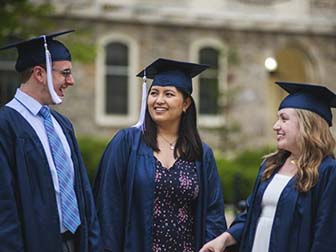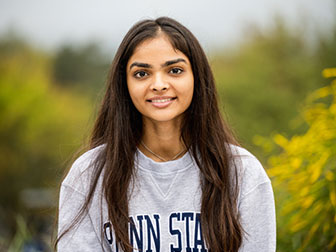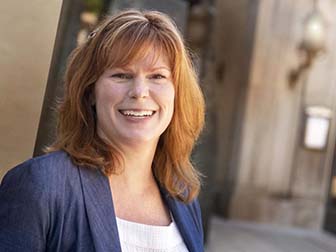UNIVERSITY PARK, Pa. — Students in Penn State’s College of Agricultural Sciences explored Greece’s rich culture — and its food — while studying abroad in Thessaloniki, Greece, this summer.
Providing this opportunity to Penn State students was important to Chris Sigler, assistant teaching professor and academic adviser in the Department of Food Science. His goal was to help his food science students expand their experiences outside the classroom and create networking opportunities.
“I believe that when students look back on their college careers, they should feel that those classes broadened their experience and understanding of what they are studying,” Sigler said.
With support from the college’s Undergraduate Education and Ag Sciences Global offices, Sigler worked with Helen Yarenis, study abroad coordinator of marketing and communications for Perrotis College — part of the American Farm School in Thessaloniki — to allow Penn State students to earn credit while taking part in a six-week study abroad program hosted by Perrotis.
Students could take two courses — "Mediterranean Diet" or "Greek Wine Business" — or participate in an internship or research. They also studied Greek culture and language and visited historical sites, such as Mount Olympus and the Parthenon, and traditional sites, including a mussel farm and a cherry festival. And, of course, they learned how to make traditional Greek food.
Lauren Wolf, a second-year food science major, opted for the Mediterranean Diet course. She said going on excursions and field trips throughout Greece allowed her to gain hands-on experience.
One of the most interesting things Wolf learned during her trip abroad, she said, was how important the agriculture industry is in Greece. Additionally, she learned about the health benefits of seafood and its role in the Mediterranean diet.
She also found that her time abroad allowed her to connect with fellow Penn Staters and meet students from other universities, which helped her to be more open to new experiences.
“Studying abroad helped grow my independence through traveling to Greece,” Wolf said. “Also, I feel it’s helped me become more outgoing and connect with others.”
Catarina Rodrigues, a third-year food science major, is interested in product development and chose to do research at Perrotis that focuses on the product development of gluten-free and dairy-free snacks. She and her partner baked foods and analyzed their water activity, colors, textures and other characteristics.
“People would come for taste tests and tell us their favorite samples,” Rodrigues said. “I just remember feeling so excited at that moment, just doing something that was food science-related, which restored my confidence in choosing my major.”
The experience also enabled them to meet food science majors from other universities, including Ohio State, Purdue, University of Illinois Urbana-Champaign, Texas A&M and Virginia Tech.
“They now get to learn what it is like to meet other food scientists — because food science is a very small field — and they have the opportunity to start networking and collaborating with other students from different universities, who might be students they end up working with in the field in the future,” said Sigler.
Sigler plans to work with Perrotis College to expand the program. He also plans to lead a small group of students back to Perrotis as part of an embedded spring course, Food Science 460: International Food Production.
“Global engagement is essential to strengthen interpersonal skills and broaden global perspective,” said Ketja Lingenfelter, assistant director for student global engagement for Ag Sciences Global. “International immersion and hands-on experiences not only allow students to gain skills not typically developed in a classroom but also to discover facets of their potential careers on a global level.”
This course supports the college’s Sustainable and Accessible Study Abroad initiative, which encourages students to incorporate sustainable practices into their study abroad experiences and makes studying abroad accessible to all students.
Further information about study abroad opportunities through the College of Agricultural Sciences is available by contacting Lingenfelter at ketja@psu.edu or by visiting agsci.psu.edu/students/study-abroad.



